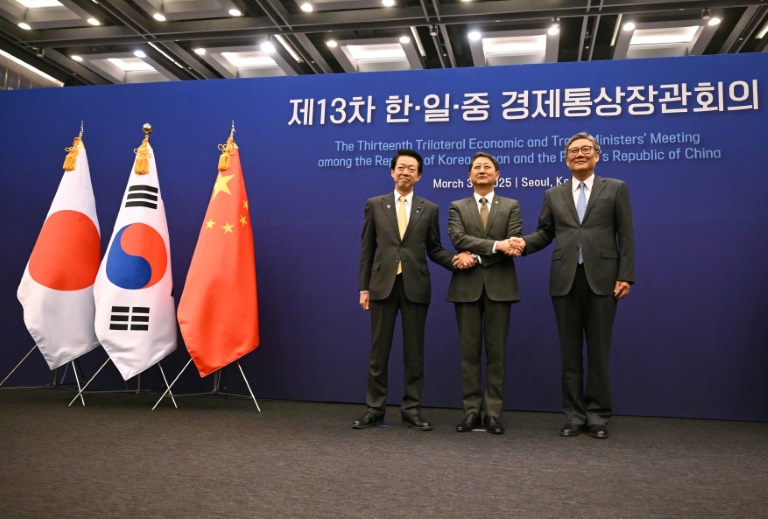[SINGAPORE] Clear regulations and finance mechanisms are needed to boost green shipping fuels such as ammonia and methanol, said industry players who spoke at the Singapore Maritime Week.
They also expressed optimism that an upcoming sustainability meeting under the International Maritime Organization (IMO) – from Apr 7 to 11 – can have positive outcomes despite ongoing geopolitical tensions.
“Producers and consumers of green fuels need to have the confidence that the regulations are sustainable in the long term,” said Katharine Palmer, maritime lead at the Climate Champions Team, which works with the United Nations on climate action.
She noted that suppliers will not commit to large scale production of green shipping fuels if the “demand for their products will not be there”.
“Similarly, shipowners will not commit to new technologies and fuels that may place them at a long-term competitive disadvantage. And port operators and others won’t have the confidence to make long-term investments to be able to supply green fuels,” she said in a speech on Wednesday (Mar 26) at the Suntec Singapore Convention and Exhibition Centre.
Palmer expressed hope that a “strong, ambitious outcome” at next month’s 83rd session of the IMO’s Marine Environment Protection Committee (MEPC 83) will send a “clear market signal” on sustainability.
A NEWSLETTER FOR YOU
Friday, 12.30 pm
ESG Insights
An exclusive weekly report on the latest environmental, social and governance issues.
Her comments were echoed by panellists at a session discussing expectations for the meeting on Wednesday.
The industry’s ability to agree on finance mechanisms, such as carbon pricing, is “absolutely critical”, said Associate Professor Chai Kah Hin of the National University of Singapore.
“It’s not just about the amount that we charge but also the certainty of the direction. I think this is a very important market signal to the industry players, to the fuel producers, that we are serious,” he said.
Without the right mechanisms to create price parity between fossil and green fuels, the energy transition could be delayed, some panellists noted.
After all “shipowners and operators have an obligation to their shareholders to go after the least-cost options that are available to them”, said Aparajit Pandey, principal for shipping decarbonisation at RMI, a non-profit.
The call for the IMO to do more on green fuels was echoed in another panel that discussed sustainable finance on Thursday.
“What we need now is fairly early and sizeable investments in net-zero fuels to be able to have them available when you need them later on, rather than focusing on just being able to comply through, for example, LNG and unsustainable biofuels,” said Jason Anderson, senior programme director at the ClimateWorks Foundation.
Funds for such early investments and for a “just” energy transition could be raised through the IMO system, through a levy, for instance. Otherwise, the “burden for financing the transition falls very late and very heavily on the industry itself”, said Anderson.
Geopolitical impact
MEPC 83 comes at a challenging time, with the US backtracking on climate commitments and energy majors shifting their focus back to fossil fuel production.
However, geopolitical changes have “not slowed down the momentum on climate change”, said Sveinung Oftedal, chief negotiator for green shipping at Norway’s Ministry of Climate and Environment.
“I still have a good feeling that we will land a good agreement again this year,” said Oftedal, citing the meeting as an opportunity to demonstrate that “multilateralism is indeed functioning in this world”.
“We have a climate crisis. There’s no other option than landing a deal this year,” he added.
Many jurisdictions – such as Singapore, the European Union, Japan and China – have already formulated policies for green shipping, noted Wei Ruan, head of the Maritime Technology Cooperation Centre in Asia at the Shanghai Maritime University.
RMI’s Pandey believes that the industry “has the opportunity right now to provide a counter-narrative to some of the headwinds that we’ve seen against climate change” and have a positive impact on other industries.
“If it’s done in the right way, then scaling hydrogen for our field could also have the right impact on steel, on aviation, creating more economies of scale (and) the right virtuous cycle that can drive all the other sectors that are requiring decarbonisation,” he said.
Financiers’ role
Another important element for the shipping sector to decarbonise is green finance, said participants in the Thursday panel.
More industry players are investing in green technologies such as electrification, noted Yoon Mee Jeong, managing director and head of the sustainability office, global wholesale banking, at OCBC.
This is especially ahead of Singapore’s 2030 requirement for all new harbourcraft to be fully electric or compatible with green fuel. For instance, the bank had financed Yinson GreenTech – a unit of Malaysia-listed energy infrastructure company Yinson Holdings – to develop a prototype of an all-electric crew transfer vessel.
OCBC has also adopted the Poseidon Principles, a framework for the bank to track carbon emissions reduction in its shipping portfolio. While the data collection process can be “painful”, it allows the bank to have “meaningful conversations” with clients, she said.
The maritime industry is coming up with “ambitious, robust” transition plans and accepting the need to price in decarbonisation, said Abhishek Pandey, global head and managing director of transport finance at Standard Chartered. He also noted that there are now more alternative financiers, such as private credit providers.
Decarbonisation can’t be ignored when raising finance, with most of the market “now asking for it”, he said.







